Adapting to the Common Core Transcript
David [interview]: Hi. This is David Olio from South Windsor High School.
DC: Good. So, a head nod, "yes." Good.
David [interview]: There were very specific challenges that teachers face in attempting to apply Common Core standards in the classroom. Teachers need resources in order to examine their own work. We need to be able to reach out and to have conversations with colleagues. Barbara Lauraine is an English teacher at South Windsor High School. She's a colleague of mine across the hall.
[00:00:45.12]
David [interview]: Barbara and I have collaboration time together twice a month. In doing so, we've had opportunities to examine practices and policies that are associated with the Common Core.
David: I used to have students write three page responses and yes, we'd say, "I want you to have language in there. I want you to obviously have what we used to refer to as key lines, we wanted you to examine those lines. You know what I'm saying. I think...
Barbara: No longer do we just want to say, "it's okay for kids to just get the who, what, when, where why" of the content of the piece. We want to believe and we do believe that all students should be able to go to those depths of understanding something. Which, possibly in the past, you didn't have to do if you...
David: Some students would do it on their own and be capable of doing that and others...
Barbara: But that wasn't the expectation, so those that could do it on their own would automatically get an A, those that did what they were supposed to do get a B and so forth. You wouldn't necessarily nurture that ability - those techniques, with the other students.
David: That's what I'm saying, that I think I can see shifts in my work over the last 5 years and - as far as that Common Core standard goes, it - it gives a specific voice to what we have been moving towards.
Barbara: For me, as a teacher it means for me to be able to better articulate the process of interpreting something. For me, I had to say, "okay, what's - how am I gonna end up this paper. What do I have to do in order to get there? And so, how can I divide up these different steps and thinking through something so that students can see it so that I - as a teacher - can then go back and say, "I see where you start to fall down."
[00:02:46.00]
David: I think, typically when you think about AP and AP classes, that students really demand independence. The kind of thinking requires that. I think sometimes, you don't think of the scaffolding as appropriate for that. At least, I wrestle with that. I want them to be able to think on their own two feet. I want them to be able to promote their own interpretations but this is really giving them ladder.
Barbara: It's a whole different way of looking at learning.
David [interview]: I am very grateful to my colleagues on a number of levels. There are people who I can talk to, they help me process. These are people who also bring passion, they bring dedication, but even most importantly for me, they bring a certain truth and honesty to their work. Teaching is really about a search for truth and for individuals to help foster than on a day to day basis. I find myself immensely grateful.
[00:04:03.16]
END

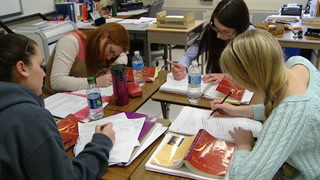
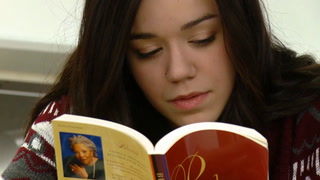
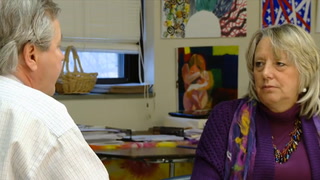
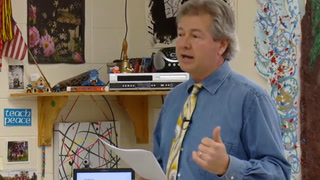
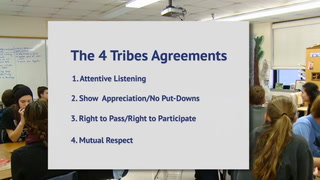
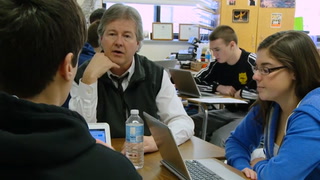
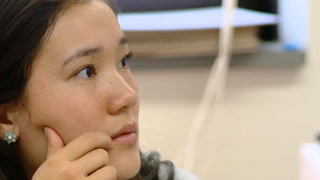
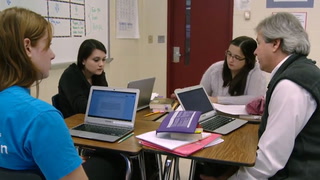








1 Comment
Jeremy Dixon Jun 25, 2017 7:24pm